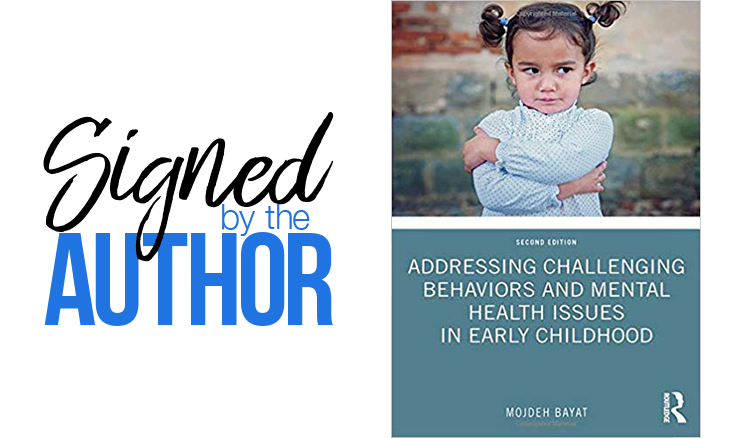 (DePaul University/Jeff Carrion)Addressing Challenging Behavior and Mental Health Issues in Early Childhood, second edition
(DePaul University/Jeff Carrion)Addressing Challenging Behavior and Mental Health Issues in Early Childhood, second edition
By: Mojdeh Bayat, College of Education
A trauma-informed framework is recommended for any type of work with children and adolescents from preschool through high school, and more recently in higher education institutions. This framework requires professionals to be aware of the effects of stressful events on a child’s development, particularly the impact of highly stressful events and conditions consistently and chronically present in the lives of many children around the world on a daily basis.
“Addressing Challenging Behavior and Mental Health Issues in Early Childhood” juxtaposes two often-opposing intervention approaches - behavioral vs. emotionally responsive and positive person-centered - to introduce a novel way of working with children. It offers a way to address emotional needs, as well as behavioral needs of children. The goal is to promote a child’s mental health, not only from an emotional level and internally, but to help change maladaptive behaviors externally and through guidance of adults.
What's the most surprising thing you learned while writing this book?
The movement of "trauma informed education," which began some years earlier, has become more popular in public education. Yet, many parents and educators continue to be ignorant about the commonality of traumatic stress in the lives of our children. Trauma is not necessarily a cataclysmic event in life. Trauma is ongoing stress, which over time leads to a wear and tear of our emotional, cognitive and physical health and resources.
The increase in the use of opioids, suicide rates and mental health issues in our youth should be a wake-up call for us - parents and educators. The solution is not complex. It requires awareness and a good bit of attitude change, both of which will lead to change in our own behaviors toward children.
Who inspired you to write this book?
I have two children. My son is now an adult and has a severe form of autism spectrum disorder. My other child is an intellectually gifted young person who has dealt with anxiety and depression. Both have been inspiration for all my scholarship and work.
About the author:
Mojdeh Bayat is a professor of child development and early education in the College of Education. She is an internationally known expert in the education and treatment of children with mental health issues and neurodevelopmental disorders. Bayat has advocated for educational rights of children with neurodevelopmental disorders in West Africa and Mexico. Her research focuses on innovative and positive approaches to education of children who deal with mental health issues and ongoing stress and trauma.
Publisher, publication date, length:
Routledge, 2020, 252 pages
Signed by the Author allows DePaul faculty and staff to introduce their recently published or upcoming book or chapter to the university community. To submit your book or chapter for consideration, contact Newsline.